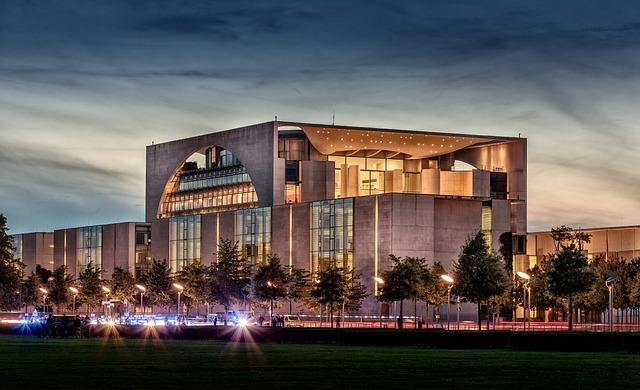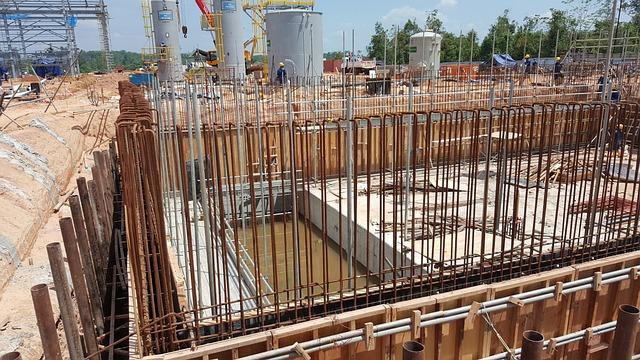How the Interim Government Can Make Lasting Reforms in bangladesh
As Bangladesh navigates a complex political landscape, the role of the interim government becomes increasingly pivotal in shaping the nation’s future. With the capacity for change firmly in its hands, this transitional management faces a unique opportunity to implement lasting reforms that not only address pressing socio-political issues but also enhance the respect for human rights across the contry. According to a recent report by human Rights Watch, the need for complete reform is urgent, with entrenched challenges such as political violence, judicial independence, and freedom of expression demanding immediate attention. This article explores the critical steps the interim government can take to foster a more just and equitable society, highlighting the importance of collaboration with civil society, adherence to international human rights standards, and the engagement of marginalized communities in the reform process. By seizing this moment, the interim government can lay a foundation for a more democratic and resilient Bangladesh.
Potential for Political Stability in Bangladesh Through Transitional Governance
The potential for political stability in Bangladesh hinges on the effective establishment of transitional governance, a mechanism that can serve as a bridge to lasting reforms.By prioritizing inclusive dialog among political factions, civil society, and marginalized communities, an interim government can foster an atmosphere conducive to peace and stability. The emphasis should be on key principles that enhance political legitimacy and public trust, including:
- Transparency: Ensuring all government actions are open to public scrutiny.
- Accountability: Implementing checks and balances to hold leaders responsible for thier actions.
- Participation: Encouraging citizen involvement in policy-making processes.
A transitional government must prioritize reforms in key areas such as the electoral framework, law enforcement, and human rights protections. By aligning its policies with the demands of the populace, it can address longstanding grievances that have fueled unrest. Below is a table summarizing critical reform areas and their potential impacts:
| Reform Area | Potential Impact |
|---|---|
| Electoral Reforms | Increased public confidence in election integrity. |
| Law Enforcement Reforms | Enhanced public safety and reduced abuse of power. |
| Human Rights Protections | Strengthened societal trust and lowered tensions among groups. |
Through these measures, the interim government has the opportunity to redefine governance in Bangladesh, transitioning from instability to a foundation of democratic resilience. By executing these reforms effectively, it can not only stabilize the political landscape but also create a model for future governance that is both equitable and sustainable.

Addressing human Rights Violations: The Role of the Interim Government
The interim government possesses a pivotal opportunity to enact significant reforms that can mend the frayed fabric of human rights in Bangladesh. In an era marked by increasing scrutiny from both domestic and international arenas, it is crucial to prioritize accountability and transparency. Key to this effort is the establishment of self-reliant oversight bodies that can investigate reports of violations.This would not only deter future abuses but also restore faith among the populace regarding governmental integrity. Engaging with civil society organizations and human rights activists is equally vital, as their insights can illuminate the extent of the violations and guide effective policy formulation.
The interim government should also consider the introduction of educational programs aimed at fostering a culture of human rights awareness across all levels of society. Effective measures might include:
- Training for law Enforcement: Equipping police and military personnel with knowledge about human rights can dramatically lessen the instances of abuse.
- Public Awareness campaigns: Utilizing media and community outreach to educate the population on their rights will empower citizens to demand and defend their entitlements.
- Legislative Reforms: Streamlining laws to ensure they align with international human rights protocols is essential for fostering a just legal framework.
moving forward, collaboration with international bodies will enhance the credibility of the reforms undertaken. A transparent approach will serve not only to address systemic violations but also pave the way for a more just and equitable society.

Revamping Electoral Processes to Strengthen Democracy in Bangladesh
To foster a robust democracy in bangladesh, the interim government must prioritize a complete overhaul of the electoral framework. This includes establishing an independent electoral commission equipped with the authority to organise free and fair elections. By ensuring the commission operates without political interference, the integrity of the electoral process can be significantly enhanced. Key reforms should encompass:
- Voter Registration Improvements: Implementing a transparent and accessible voter registration system to increase participation.
- Voting Technology Upgrades: Adopting secure and efficient voting methods, including electronic voting machines.
- Election Monitoring Mechanisms: including local and international observers to ensure transparency during the electoral process.
- Public Awareness Campaigns: Creating initiatives to inform citizens about their voting rights and the importance of participation.
moreover, the interim government should focus on strengthening the legal framework surrounding elections to deter electoral fraud and violence. This could involve revising existing laws to ensure that they align with international standards. Collaboration with civil society organizations can play a pivotal role in building trust and accountability. The table below outlines potential legal amendments needed to secure electoral integrity:
| Proposed Amendment | Objective |
|---|---|
| Strengthen penalties for electoral fraud | To deter corruption and malpractices |
| Allow for independent media access | To ensure unbiased coverage of electoral activities |
| Regulate campaign financing | To promote transparency in political funding |
| Enhance voter protection laws | To safeguard the rights of all voters |

Promoting Economic Resilience and Social Justice Amidst Political Transition
As Bangladesh navigates a period of political transition, the interim government has a unique opportunity to enact reforms that elevate both economic resilience and social justice. Investing in local communities is vital; by channeling resources into underserved regions, the government can facilitate job creation and bolster small businesses. Engaging with local stakeholders ensures that the voices of marginalized populations are heard, fostering a sense of inclusion. Key areas for investment should include:
- Education and vocational training programs to equip individuals with market-relevant skills.
- Affordable healthcare initiatives to improve the overall well-being of the workforce.
- Sustainable agriculture projects that empower farmers and enhance food security.
Moreover, it is indeed crucial to implement policies that guarantee protection of human rights and promote equality. Establishing a transparent legal framework will help hold both the government and private entities accountable, especially regarding labor rights and environmental standards. The interim government could also consider forming community oversight committees, which would further enhance citizen engagement and ensure that reforms are equitable. A focused approach could involve:
| Area of Reform | Action Required | Expected Outcome |
|---|---|---|
| Labor Rights | Enact stronger labor laws | improved working conditions |
| Environmental Sustainability | Regulate industrial emissions | Healthier communities |
| Social Programs | Increase funding for welfare services | Reduced poverty rates |

Engaging Civil Society to Foster Transparency and Accountability
To successfully implement reforms aimed at enhancing governance in bangladesh, it is imperative to actively involve civil society. By doing so, the Interim Government can harness the collective insight and experience of various community groups, activists, and organizations.These stakeholders not only serve as watchdogs but also can contribute to the formulation and monitoring of policies that promote transparency and accountability. Key strategies for this engagement include:
- Establishing Open Dialogues: Creating forums where citizens can express their concerns, suggestions, and feedback on government actions.
- Strengthening Alliances: Partnering with local NGOs and advocacy groups to amplify voices and gather diverse perspectives.
- Encouraging Media Participation: Working collaboratively with journalists to ensure accurate reporting and to expose corruption or maladministration.
A transparent administration resonates profoundly with the populace and can build public trust in governmental institutions. Facilitating the involvement of civil society must also come with legislative backing to ensure that these bodies can operate freely and assertively. To this end, the creation of a structured framework could help delineate the roles of civil society in governance, including:
| Role of Civil Society | Expected Outcomes |
|---|---|
| Policy Advocacy | Informed legislation reflecting public interests |
| Monitoring Government Actions | Reduced corruption and better accountability |
| Public Awareness Campaigns | Increased civic engagement and responsibility |

Long-term Strategies for Sustainable Reform and Development in Bangladesh
To achieve meaningful and sustainable reform in Bangladesh, the interim government must emphasize the establishment of transparent governance frameworks. This involves engaging with civil society, setting up effective interaction channels, and making public resource allocation more visible. By fostering an environment where government actions are monitored and scrutinized, citizens will regain trust in state institutions.further, a commitment to regular consultations with stakeholders, including marginalized communities, can ensure that reform measures reflect the diverse needs of the population. increased transparency will not only enhance accountability but also spur greater citizen participation in governance.
Additionally, the focus on education and skill development is crucial for sustainable development. The government should invest in educational reforms that prioritize critical thinking, creativity, and vocational training to prepare the youth for a rapidly changing job market. Collaborating with local and international organizations to create partnerships can aid in resource mobilization and bring innovative practices into the educational system. Moreover, support for women’s education and empowerment initiatives is essential for creating balanced opportunities across gender lines. investing in human capital and fostering an inclusive education system will pave the way for long-term socio-economic development.

concluding Remarks
the path to meaningful and lasting reforms in Bangladesh lies within the hands of the interim government,which holds the potential to shape a new era for the nation’s governance and civil liberties. By prioritizing human rights, fostering an inclusive political dialogue, and implementing transparent policies, the interim administration can address longstanding grievances and build a more resilient democracy. The human rights framework provided by organizations like Human Rights Watch serves as a vital roadmap for these necessary changes. As the world watches, the choices made by the interim government will not only define its legacy but also significantly impact the lives of millions of Bangladeshis. The time for decisive action is now—the country stands at a pivotal crossroads, and the opportunity to inspire hope and reform is within reach.

















